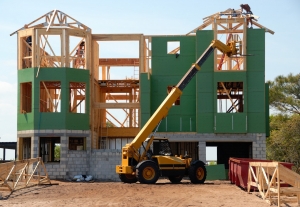Retirement often brings a shift in priorities, with many seeking a simpler, more financially sustainable way of living. Among the options gaining popularity is the land lease model, a setup that offers a unique alternative to traditional homeownership. While it presents distinct advantages, especially for retirees looking for flexibility, it is important that you familiarise yourself with everything there is to know about land lease communities and how you can benefit from them.
Knowing What's Yours and What's Not
Owning a home outright typically means you hold the title to both the property and the land it sits on. This full ownership structure provides long-term security, potential capital growth, and complete control over modifications. However, it also comes with significant upfront costs such as stamp duty, council rates, and ongoing maintenance, which can be a heavy financial commitment, especially for those on a fixed retirement income.
A land lease model, on the other hand, separates homeownership from land ownership. Buyers purchase the dwelling itself but lease the land beneath it, paying a regular fee to the site owner. This often results in a lower entry cost, allowing retirees to access well-designed homes in desirable communities without the financial strain of buying land. In many cases, there is no stamp duty or council rates, further reducing expenses. For those who have built up significant home equity over the years, this model can also provide a way to free up capital for travel, hobbies, or simply enjoying a more relaxed retirement.
Life in a Land Lease Community
Beyond the financial aspect, lifestyle considerations play a key role in choosing where to live. Many land lease communities are designed with retirees in mind, offering resort-style amenities, social activities, and low-maintenance living. For those who value a sense of community and convenience, these setups provide a welcoming environment with like-minded neighbours and shared facilities such as pools, clubhouses, and fitness centres. The ability to engage in group activities and events can be especially beneficial for individuals looking to stay active and socially connected in their later years.
Traditional homeownership, while offering complete independence, doesn't always provide the same built-in social opportunities. In suburban neighbourhoods, for instance, residents may find themselves surrounded by younger families or working professionals, making social connections less accessible. Additionally, maintaining a standalone home, be it lawn care, repairs, or general upkeep can become increasingly burdensome with age.
Financial Predictability and Legal Security
One of the main advantages of a land lease arrangement is the predictability it offers. Site fees are typically governed by agreements that outline any potential increases, ensuring costs remain transparent. Many retirees appreciate the stability of knowing what their expenses will be, allowing for better budgeting and financial planning. Some communities even offer capped increases or long-term lease agreements that protect residents from unexpected cost hikes, making it easier to plan for the future without financial surprises.
That said, it is important that you review lease terms thoroughly and understand what is included. While most communities operate under strict regulations designed to protect residents, it is wise to understand the terms fully, particularly when it comes to rent adjustments and length of tenure. Seeking legal advice before committing can help ensure the arrangement aligns with long-term financial goals. It is also important to consider the resale potential of a home in a land lease community. While these homes can be sold like traditional properties, buyers must be comfortable with the leasing arrangement, which can sometimes affect market demand.
Takeaways
Choosing between land lease and traditional homeownership ultimately hinges on personal priorities. Those who prioritise full ownership and potential long-term asset appreciation may find the traditional route more appealing. However, for retirees seeking a low-maintenance lifestyle, financial flexibility, and access to a vibrant community, a land lease can be an attractive alternative.
Additionally, retirees should consider their future needs when making a decision. Health and mobility can change over time, and choosing a living arrangement that allows for easy transitions, whether it is downsizing further or moving to an assisted living facility can be a smart long-term strategy.






